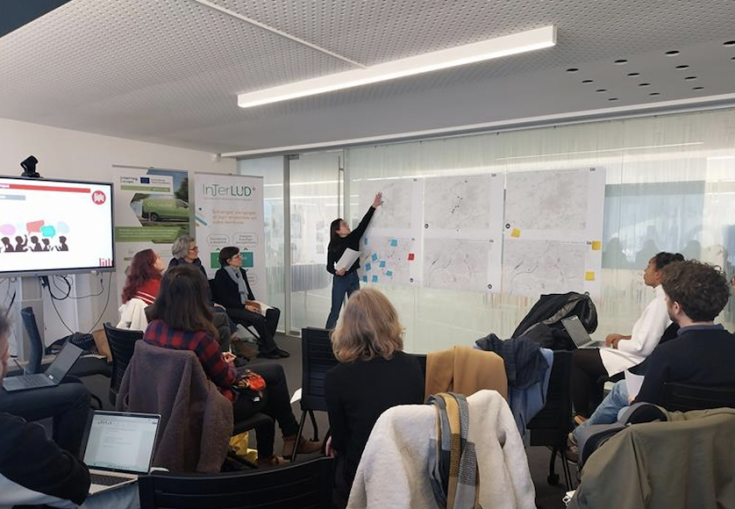Cargo Bike and real estate logistics operators met in Lille

In November, the City of Lille organised its 4th Regional stakeholder Group Meeting with two different stakeholders categories in an attempt to face and cover different logistics issue.
On 14th November 2024, the cargo bike logistics operators were met.
22 participants took part in the meeting, including general and specialised logistics operators, specialised cargo bike logistics operators and representatives of different public administrations, to discuss the deployment of cyclo-logistics in the Lille area. Besides networking between stakeholders, the aim was to define and understand cyclo-logistics in the city, collect needs (current and future) and identify the key actions for the development of professional cyclo-logistics in the city of Lille. After the circular economy and urban logistics officer of the Ville de Lille set the context and gave a brief overview of the history of cyclo-logistics in Lille, Gaëtan Piegay, from the Fédération professionnelle de la cyclo-logistique, presented a practical approach to the field to launch discussions and get to grips with the subject.
At the end of the workshop, participants worked in small groups to answer three questions: what are the problems encountered, what initiatives would you like to see emerge, and what is the priority to start with? They listed and prioritized the actions to do on the short- and long term for a wider use of cargo bike in logistics processes. At the end, the ideas and solutions were presented, highlighting the actions to be taken, the stakeholders to be involved and the deadlines to keep in mind for implementation.
On 20th November 2024, the logistics real estate operators were met.
19 participants actively participated, including representatives of areas with high logistics needs, and of different public administrations. The meeting had multiple objectives. The aim was not only to explain the importance of integrating logistics into planning schemes, but also to rethink logistics real estate and identify the needs of professionals by integrating the field approach.
The circular economy and urban logistics officer of the City of Lille started the day by giving an overview of the territory and by describing the logistics real estate’s problematics. Audrey Masquelin, from Lille European Metropolis, then presented a summary of the 2022 study on logistics land in the metropolitan area, emphasizing the multi-scalar logic of this type of logistics.
Participants were then divided into 4 groups representing different stakeholders, such as transport companies and public authorities. Using maps, they were asked to identify the major logistics real estate they knew of in the city and the metropolitan area, in order to point out the characteristics of the real estate they require. In the end, the participants with real estate needs tried to find their match within the group of people with available real estate.
